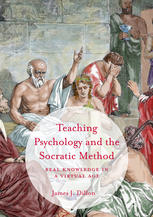

Most ebook files are in PDF format, so you can easily read them using various software such as Foxit Reader or directly on the Google Chrome browser.
Some ebook files are released by publishers in other formats such as .awz, .mobi, .epub, .fb2, etc. You may need to install specific software to read these formats on mobile/PC, such as Calibre.
Please read the tutorial at this link: https://ebookbell.com/faq
We offer FREE conversion to the popular formats you request; however, this may take some time. Therefore, right after payment, please email us, and we will try to provide the service as quickly as possible.
For some exceptional file formats or broken links (if any), please refrain from opening any disputes. Instead, email us first, and we will try to assist within a maximum of 6 hours.
EbookBell Team

0.0
0 reviewsThis book presents a lively and accessible way to use the ancient figure of Socrates to teach modern psychology that avoids the didactic lecture and sterile textbook. In the online age, is a living teacher even needed? What can college students learn face-to-face from a teacher they cannot learn anywhere else? The answer is what most teachers already seek to do: help students think critically, clearly define concepts, logically reason from premises to conclusions, engage in thoughtful and persuasive communication, and actively engage the franchise of democratic citizenship. But achieving these outcomes requires an intimate, interpersonal learning community. This book presents a plan for using the ancient figure of Socrates and his Method to realize humane learning outcomes in the context of psychology.